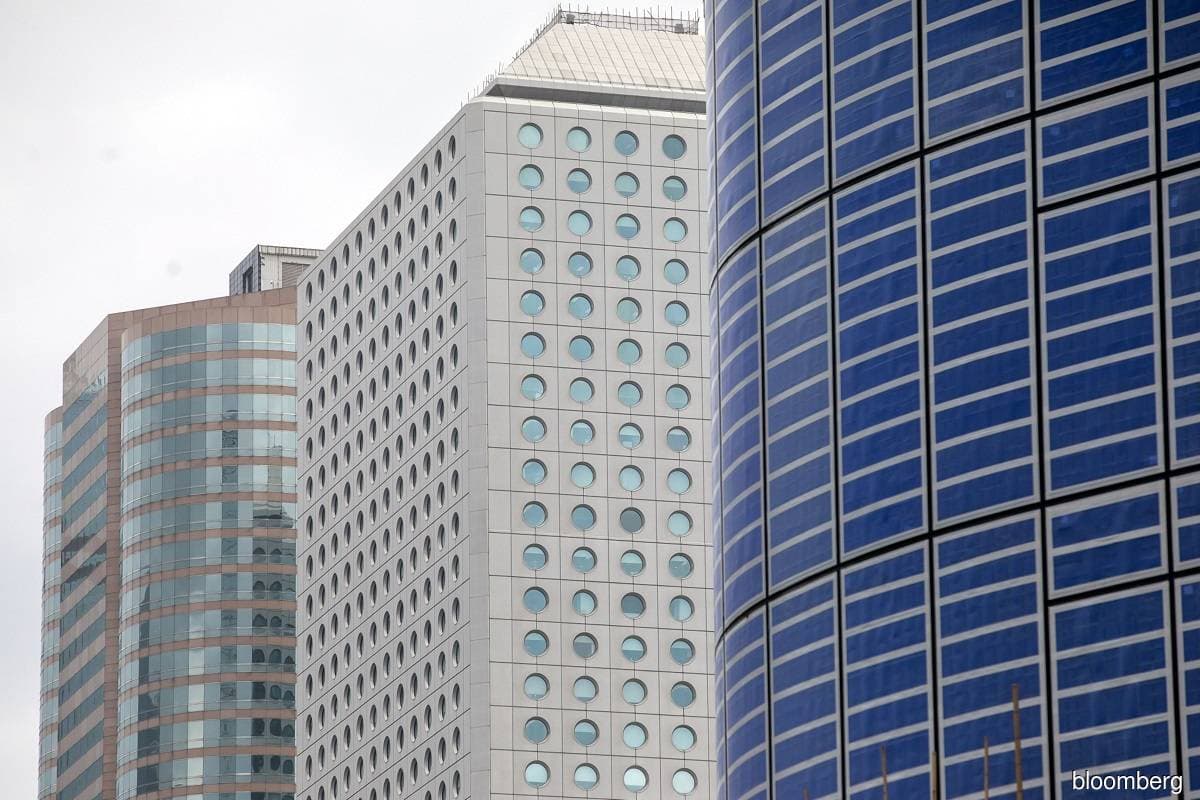
KUALA LUMPUR (Aug 5): The global office market, which was subdued last year, is expected to see growth with the increasing hybrid working trend, according to international real estate consultancy firm CBRE.
At the CBRE Mid-Year Global Real Estate Market Outlook 2022 webinar held on Friday (Aug 5), CBRE head of US office research Jessica Morin said that generally, US and European employers are in support of hybrid working trend and employees are returning to the office soon as the world is entering the endemic phase of Covid-19.
"Return to office has been slow but we do expect the occupancy level [of office] to pick up in the fourth quarter once employers make it really clear about their expectations for their employees. With that said, the majority of employers are in support of hybrid work, so we do expect the employees to be [back] in the office [soon]," said Morin.
CBRE Asia Pacific head of occupier research Ada Choi concurred, adding that the Asia Pacific region saw a similar trend earlier.
"If you compare Asia Pacific, we came out from this crisis earlier [than US and Europe]. I looked at the net [office] absorption in 2021 and it has increased by 40%. That is a very strong demand and we do expect the demand's momentum to be normalised by this year," said Choi.
She also noted that apart from mainland China, especially Shanghai that was largely affected by city lockdown in the second quarter, other Asia Pacific markets with limited office supply like Singapore, Seoul, and Sydney have seen escalating rental rate. This has resulted in occupiers having to plan ahead to secure space, which delivers an overall positive outlook for the market.
"Meanwhile, some of the occupiers enjoyed more optionality and rental discounts. We expect to see the rental cycles last longer in mainland China, Hong Kong, Tokyo, and some of the Southeast Asian markets," said Choi.
Beside that, Asia Pacific has also witnessed a growing trend of flight to quality, which is related to workplace transformation and environmental, social, and governance (ESG) initiatives.
Choi noted that workplace refurbishments have been implemented to create more flexible spaces to suit hybrid working conditions. Many individual desk spaces will be replaced by more shared open spaces for collaboration.
The ESG initiatives are primarily tangible sustainable goals set by employers. One of the efforts includes relocating to buildings with green and sustainable features. Nonetheless, relocation has its fair share of challenges.
"I think there are a lot of discussions on whether these relocating moves involve downsizing and we know this is true but most of them are cost and space neutral. It's a trend we are seeing in Tokyo, Taipei, and several Australian markets.
"However, going forward I think there may be some resistance to relocation due to the sharp escalation of costs. This could potentially lower the occupiers' intentions to relocate," said Choi.
To overcome this, Choi stated that some landlords have increased incentives, extended the feudal period, and provided attorney solutions to attract tenants.